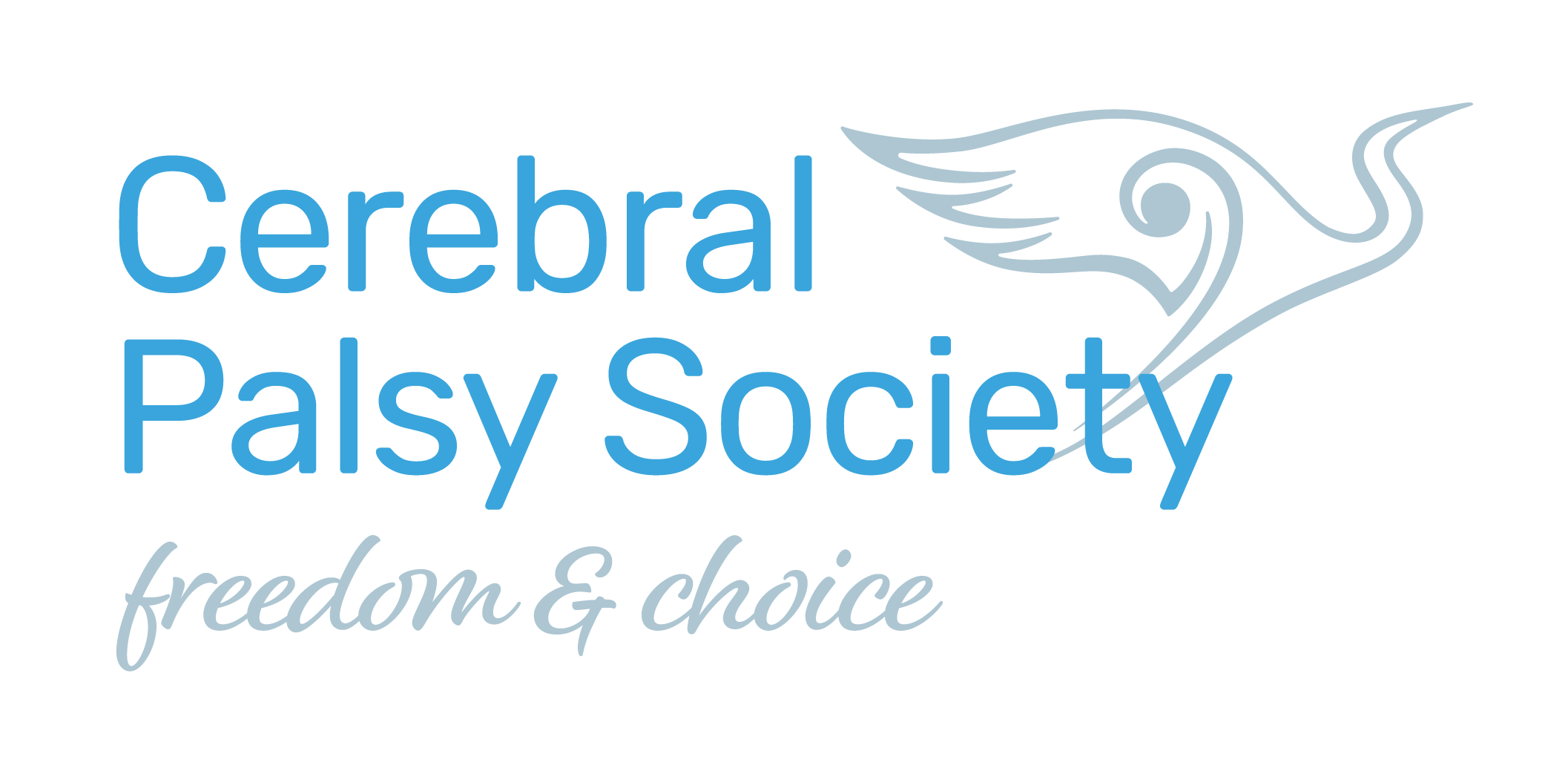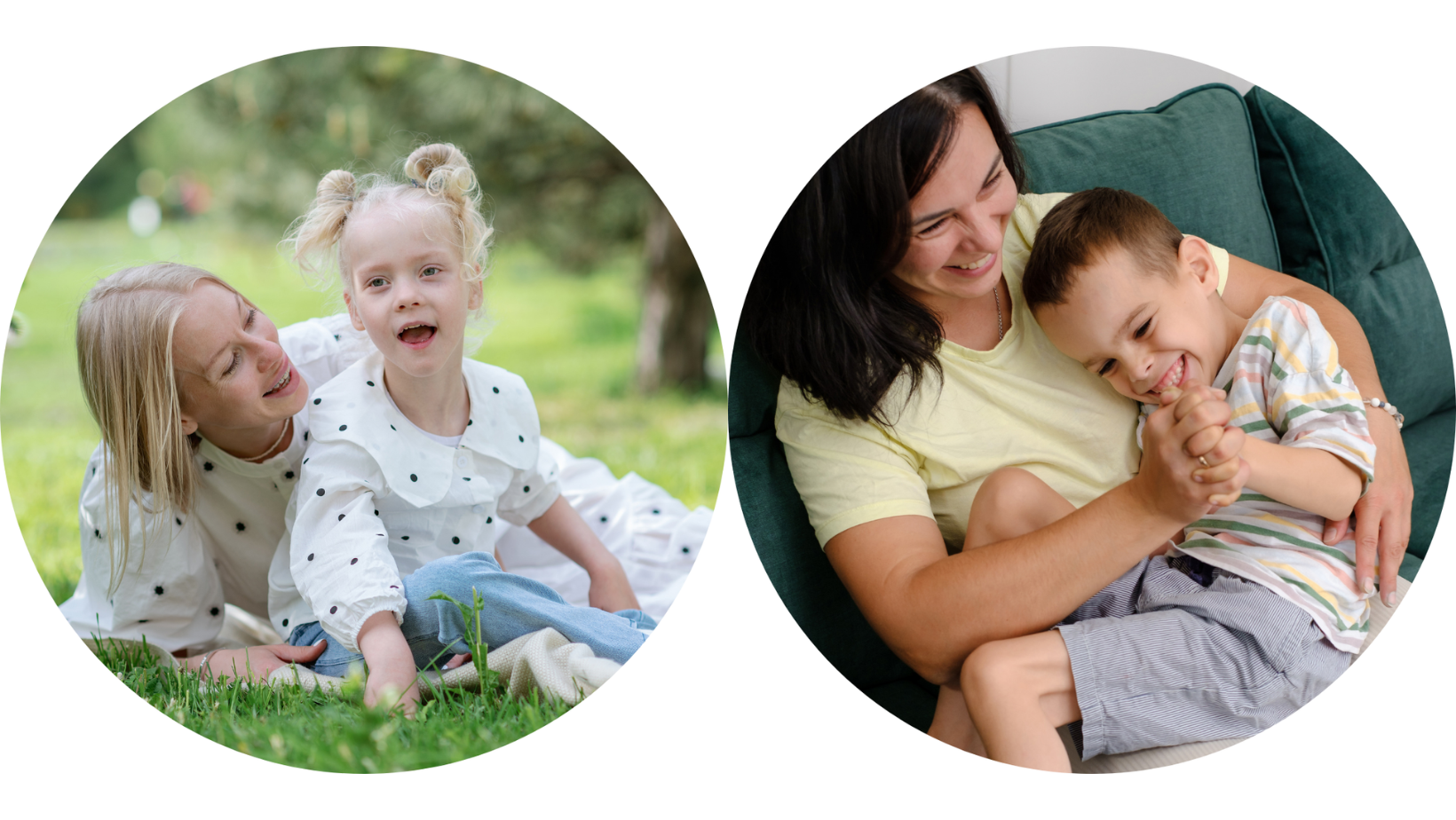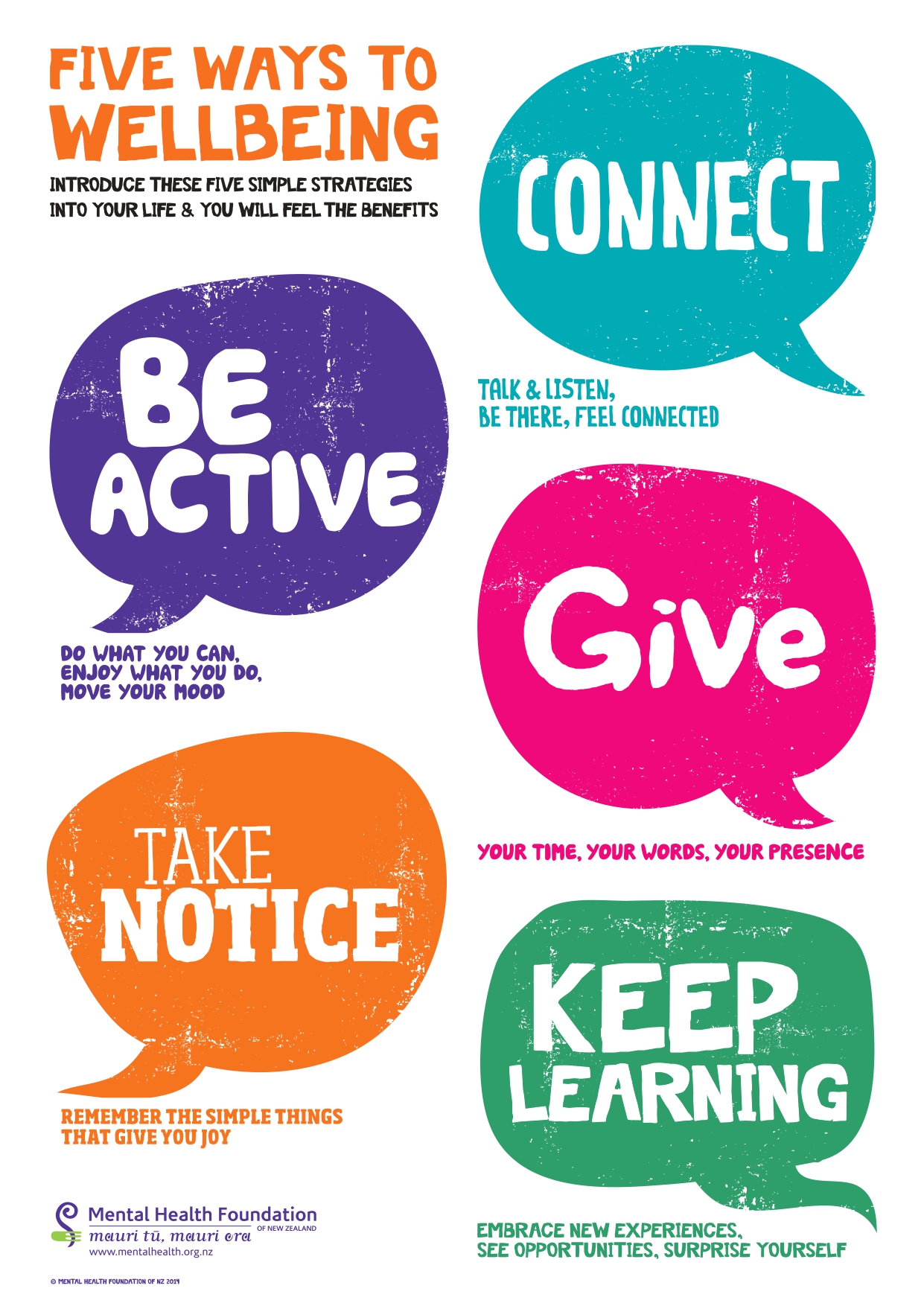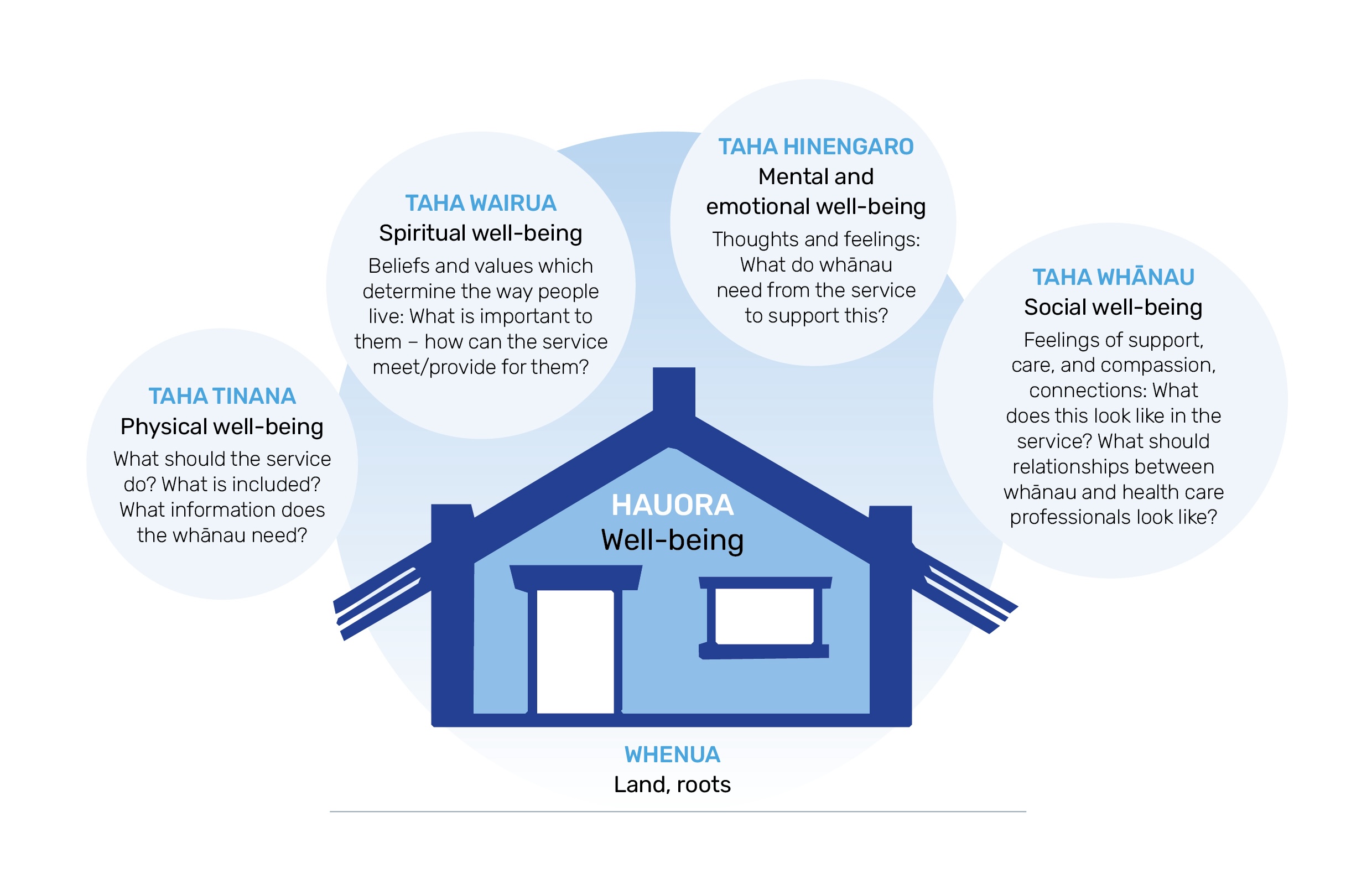The Early Years (0-5)
Chapter 8 – Looking after your wellbeing
When you and your whānau found out your child has cerebral palsy, there likely would have been a lot of different feelings and emotions. You may have felt shock, anger, denial, fear, guilt, sadness and helplessness. All these feelings are normal.
Living with a child with special needs can bring great joy and a lot of stress as you and your whānau manage all the things that are needed to keep your child happy and healthy.
Useful wellbeing websites for whānau
|
Useful websites |
|
|
Health NZ – Wellbeing support |
A clear helpful site with a range of wellbeing resources. |
|
Healthify App Library |
Contains a large collection of health-related apps, sorted into categories for young people, wellbeing and other categories. Each app has been reviewed and there are comments to help you choose the right app. |
|
Hikitia Te Hā |
Te ao Māori breathing exercises that anyone can learn. Breathing calms the body and mind and is a very helpful practice for feeling more present and mindful. |
|
Depression |
Ideas and support on how people can take care of themselves or others who are feeling anxious or depressed. |
|
Small Steps |
Digitals tools where people can take small steps on their journey to improve wellbeing. |
|
Sparklers |
A great collection of NZ based resources for (schools and) whānau for growing tamariki wellbeing and emotional literacy. |
|
The Lowdown Team |
Support for youth for their wellbeing, identity, culture and mental health. Also provides text and freephone number with trained counsellors. |
|
Mental Health Foundation |
Works towards creating positive mental health and wellbeing. Provides information, advice and resources. |
|
Family Services Directory |
A searchable online directory of family support organisations and the services/programmes they offer to support families with common issues and problems. Operated by the Ministry of Social Development. |
|
Community Law |
Offers free legal help from lawyers and resources. |
|
Citizens Advice Bureau |
Provides free, confidential, independent information and advice face-to-face or via freephone about their rights and how to access services they need. |
|
Whakarongorau Aotearoa |
The National Telehealth Service delivers free 24/7 health, mental health and social services advice and support. |
|
Online tools |
|
|
Just a thought |
Provides cognitive behavioural therapy online and is designed for people with mild-to-moderate symptoms of anxiety and depression. |
|
MoodGYM |
An interactive self-help book which helps users learn and practise skills which can help to prevent and manage symptoms of depression and anxiety. |
|
SPARX |
A free online computer game that helps young people learn skills to deal with feeling down, depressed or stressed. |
|
Smiling Mind |
Provides accessible, life-long tools to support young healthy minds. Also includes a meditation, mindfulness app for young people. |
|
Aunty Dee |
A free online tool for anyone who needs help working through a problem or problems. |
|
Free apps – iOS and Android |
|
|
Groov |
An everyday tool to feel good, bounce back from stress and sleep better. |
|
Breathe2Relax |
A stress management tool which provides information on the effects of stress on the body and exercises to help users learn breathing techniques. |
|
Selfhelp app for the Mind (SAM) |
Offers a range of self-help methods to help users manage anxiety. Provides 25 self-help options on anxiety, relaxation and health. |
|
Happify |
This app aims at making users feel happier. Happify’s science-based activities and games can help reduce stress, overcome negative thoughts and build greater resilience to improve emotional wellbeing. |
|
Helplines |
|
|
1737 |
Call or free text 1737 |
|
Lifeline |
Free 24/7 helplines for confidential support from health professionals and trained volunteers. Lifeline Helpline: 0800 543 354 or Text: 4357 (HELP) |
|
Depression |
Talk to a trained counsellor 24/7 about your feelings or to ask a question. |
|
The Lowdown Team |
To talk to a trained counsellor for youth experiencing depression or anxiety. |
|
Anxiety Helpline |
Free 24/7 support line for people of any age (and their whānau or friends supporting them) who experience all forms of anxiety including panic attacks, phobias and obsessive-compulsive disorders. |
|
Youthline |
Supporting young people who are struggling (with their mental health or other issues), as well as young people who want to learn, grow and give back to their community. |
|
Seniorline |
A national information service to help over 65s and their whānau navigate the health system. |
|
The Samaritans |
24/7 confidential crisis helpline to support anyone who may be experiencing loneliness, depression, despair, distress or suicidal feelings. |
|
OutLine |
A free and confidential support line for people who want to speak to a trained volunteer from the Rainbow community. Provides support to the Rainbow community, their friends, whānau and those questioning their sexuality. |
Some examples for helping to look after your wellbeing:
Managing stress
Stress is a natural reaction to challenge, change, risk or anything unfamiliar. Stress puts the body into a state of high alert. This helps with focus and physically achieving tasks. Some stress is helpful to motivate us to get something done, or to take extra precautions to stay safe.
Being in a state of high alert for a long period of time, affects our sense of wellbeing, mood, behaviour and how our body feels. Long-term stress can increase the risk of health conditions such as high blood pressure, headaches and depression, among other things.
Stress may not be the word you use to describe what is happening to you or your whānau. Instead, you might use words such as worry, pressure, anxiety, irritability, being wound up, being worn out, or constantly being busy.
Learning how to recognise stress, reduce what causes the stress where possible, and find ways to cope with stress, can help us maintain our wellbeing.
Reducing stress
Everything that stresses you, no matter how large or small, contributes to the total amount of stress you are feeling. Trying to recognise the stresses and understand that they can add up, is an important first step.
Once you have identified the things that are stressing you, work out which things are within your control. You can then focus your effort on reducing those stresses. Controlling or reducing something that is stressing you can help you regain a sense of control, as well as a sense of achievement and hope.
Making a change no matter how small, either to address a stressor or manage stress, can help a person regain a sense of hope and reduce feeling overwhelmed.
To stop feeling overwhelmed again, you will also need strategies to reduce you worrying or focusing on things you can’t control. Worrying about things outside your control uses effort, and time you can spend on something else. Worry will not change the things you can’t control.
For example: Make a list of all things that are stressing you and your whānau. Sort them into things you can control and things you can’t control. Focus your efforts on the things you can control and ask other people for help.
- Things I can control – getting the flat tyre fixed, getting the fence fixed so the dog doesn’t escape, being active, talking to my boss at work, spending time with my other kids, finding out what is going on for my son and getting help.
- Things I can’t control – operation date, daughters feeding problems – everyone in our daughter’s health team is working on these.
The Five Ways to Wellbeing – from the NZ Mental Health Foundation
The NZ Mental Health Foundation promotes five ways people can maintain their wellbeing – www.mentalhealth.org.nz/five-ways-to-wellbeing
Connect – me whakawhānaunga
The ability to form relationships is part of what makes us human. Positive relationships make us feel happy, connected and secure. Building meaningful relationships with whānau, friends and the community goes a long way to increasing a sense of belonging and improving wellbeing. Through sharing experiences, you can discover how you can help others. This means that when you are stressed you have the support you need to get through.
Give – tukua
Carrying out acts of kindness, whether small or large, can increase happiness, your satisfaction with life and your general sense of wellbeing. Volunteering and being involved with your community are strongly linked with feeling good and functioning well. Achievable examples include giving a compliment to someone or donating toys, clothes you don’t need to charity.
Take notice – me ara tonu
Paying more attention to the present moment, to your thoughts and feelings and to the world around you boosts your wellbeing. Taking notice helps you to behave in ways that make you feel good about yourself in ways that are consistent with your values and who you want to be. Taking notice can include gratitude, forgiveness, reflection and building a life that is meaningful to you. Examples include stopping for a while; taking 10 deep breaths in and out, calming your body and mind, then simply rest where you are noticing everything that is going on around you. Climb your maunga, swim in your awa or moana and kōrero and karakia with tangaroa.
Keep learning – me ako tonu
Learning, being curious and setting goals are important for everyone at every stage of life. Try something new or rediscover an old interest. Sign up for a course or a podcast, or take on a different responsibility. Learn to do something you have always wanted to do. Set a challenge you will enjoy achieving – seek out new experiences and dare yourself!
Be active – me kori tonu
Being physically active boosts your wellbeing and decreases stress, depression and anxiety. Find a physical activity you enjoy and one that suits your level of mobility and fitness. Do what you can, enjoy what you do, and move your mood. You can try to build physical activity into your everyday routine, like a walk with whānau after dinner.
Thinking about spiritual wellbeing
Remember Te Whare Tapa Wha talks about having four strong taha (sides) to form a strong support for the roof of your whare. www.mentalhealth.org.nz/te-whare-tapa-wha
When we talk about spiritual wellbeing it can mean many things. Spirituality is different for every whānau. For some people it is:
- Being part of a religious community with shared values
- Taking part in rituals which acknowledge a higher power
- About connecting with their tiīpuna or ancestors by visiting the marae or urupā
- About returning to their ancestral maunga or mountain, awa or river, moana or sea, roto or lake
- About saying Karakia or prayers that are relevant for the time of day, activity or situation.
Spirituality can mean a person’s mana (dignity, integrity and prestige) is intact and respected, that a person is strong in their cultural identity and that they are connected and healthy from a wairua and mauri perspective.
Think about the ways you and your whānau maintain your spirituality.

Karakia
This Karakia can be used as a form of meditation, to bring a sense of calm. The Karakia was developed and gifted by Meria Rokx, initially for tamariki at kohanga reo to help regulate feelings.
| Hā ki roto | Breathe in |
| Hā ki waho | Breathe Out |
| Kia tau te mauri e kokiri nei | Settle the mauri that stirs inside of me |
| I nga piki me ngā heke | Through the ups and downs |
| Ko te Rangimarie tāku e rapu nei | It is the peace that I seek |
| Tihei mauri ora |
Ngā mihi nui, thank you





